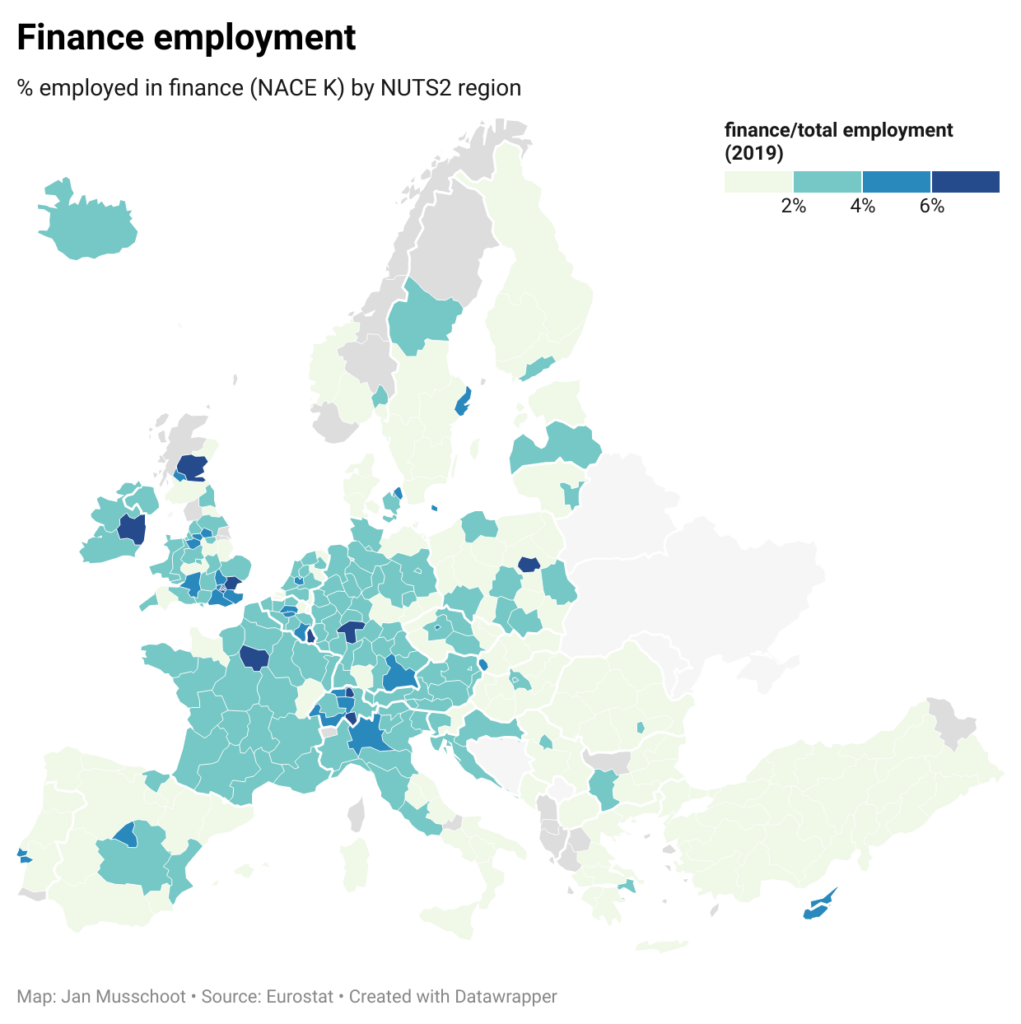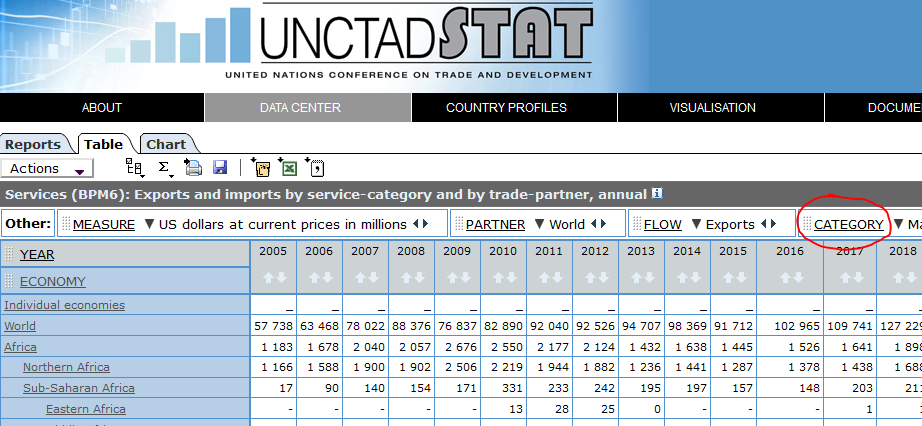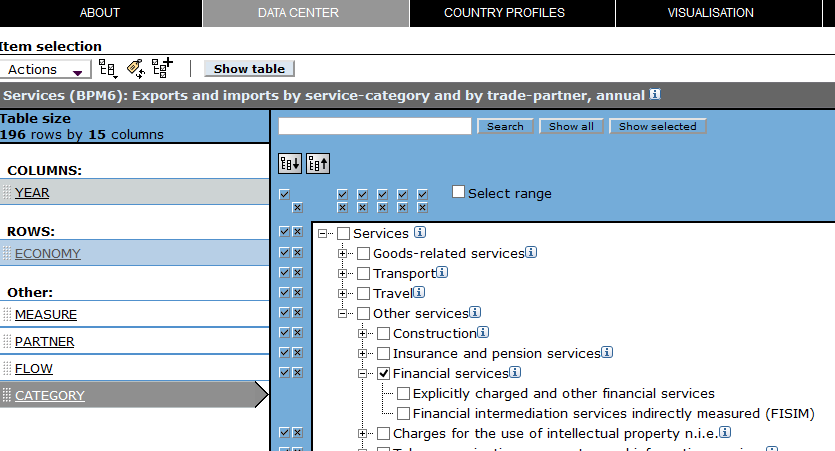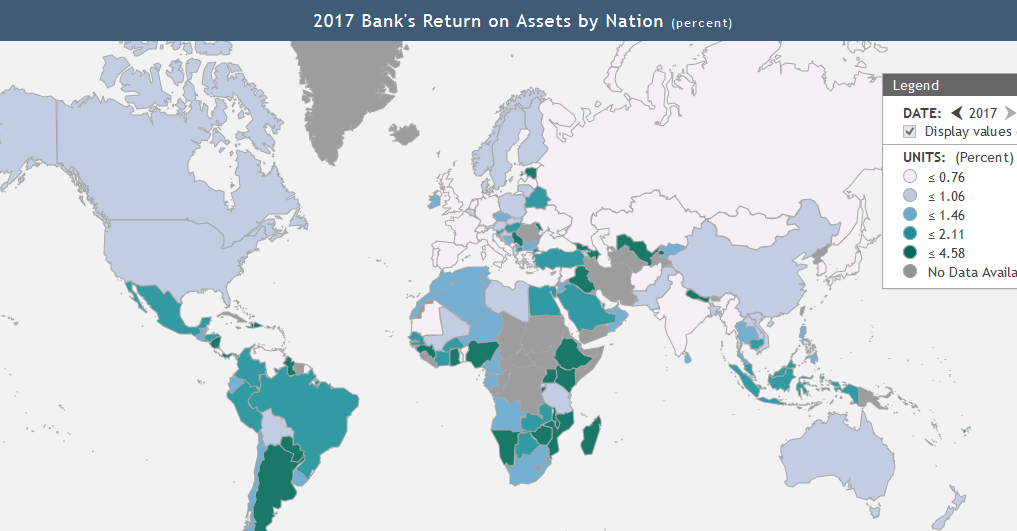Link to stand-alone visualization: https://datawrapper.dwcdn.net/eNRpM/2/

The financial world isn’t flat. International firms tend to cluster in places where they are welcomed and where they find expertise. Here are some illustrations from my own financial transactions:
Afme has a nice handbook on primary dealers in Europe. I’ll write about some financial geography insights I gained from this document in the future.
Some countries and cities are crucial for international finance, despite their modest GDP and population size. Here are some European examples:
During my research, I found a nice mathematical formula for the number of banks in a city. Details will follow later. How well the empirical data points fit the formula can be described with a statistical metric called “R-squared”. Here are some good explainers:
BIS Statistics: international banking, debt securities, derivatives…
I-TIP Services (World Trade Organization and World Bank): imports and exports of financial (and other) services


Cliché ideas of how the international economy works (see the work of Brad Setser and many others):
Let’s have a look at how the aircraft leasing business works in reality.
Financial center? Check:
“Ireland is one of the biggest centres for airline leasing in the world. Many of the world’s biggest and best airline leasing companies are based in the Republic”, which explains why Ireland has 17,000 aircraft orders. [To be fair, financial centers also benefit from the concentration of specialized workers and firms.]
Financiers from Germany, Japan and China investing in low-margin, high risk businesses? Check:
Between 2010 and 2014, [Dublin-based aircraft leasing company] Avolon also raised US$6.1 billion in debt from the capital markets and a range of commercial and specialist aviation banks including Wells Fargo Securities, Citi, Deutsche Bank, BNP Paribas, Credit Agricole, UBS, DVB, Nord LB and KfW IPEX-Bank. In 2017, Avolon entered the public debt markets and raised a total over US$9 billion in debt finance. In November 2018, Avolon announced that Japanese financial institution, ORIX Corporation had acquired a 30% stake in the business from its shareholder Bohai Capital, part of China’s HNA Group. (source: Wikipedia)
The FRED (Federal Reserve Economic Data) database is a treasure trove for bank geeks.
Bank’s return on assets by nation is one of many statistics that can be visualized with GeoFRED (click this link).

As you scroll through the years, you’ll notice a few patterns.
Return on assets is low in Western and Southern Europe, as well as in Japan.
Banks in the Americas, Africa and Central Europe achieve higher returns.
I’m curious to know what conclusions bank CEOs and regulators draw from these maps.
What are your thoughts?
Further reading:
Where in the world are banks profitable? (FRED blog)
Rethinking bank profitability (FT Alphaville, free but registration needed)
I recently started working at the Social and Economic Geography research group of Ghent University, in the team of professor Ben Derudder. We study financial networks in collaboration with the team of professor Sabine Dörry at the Luxembourg Institute of Socio-Economic Research.
But why am I at the department of geography instead of economics? In other words, what exactly is financial geography? I have to admit that I didn’t know until a couple of months ago.
This post is an attempt to describe what financial geography is, and what sets it apart from other fields that study finance.
Continue reading “What is financial geography?”